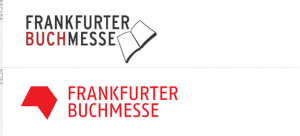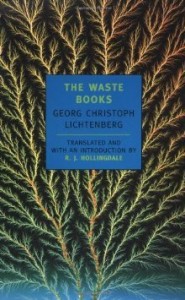Maybe THE highlight of my visit at the book fair in Frankfurt this year was the Indonesian pavilion; when you entered you literally were in another world. Much has been written about the late start of the Indonesian preparations for the fair, particularly the late kick-off of the translation grant program – but it was all well and who took a little bit time to enter the Indonesian pavilion with its slightly mystic flair could easily forget the frantic atmosphere at the fair. Well done, Indonesia! And it was a pleasure not only to catch a glimpse of the Indonesian book world, but also of the cultural treasures in other areas (Music! Film! Comics! Food!) that the world’s biggest archipelago has to offer. (Not that it was new to me as a former long-term resident of Indonesia…)
We paid of course also a visit to the Indonesian publishers (not ALL Indonesian books are published by the giant Gramedia), and particularly the visit at the Lontar booth with its interesting program of translated titles was a pleasure. Besides, Frankfurt, as is usual during the book fair, paid homage to the Guest of Honor all over the place: there were many readings, gamelan concerts and several art exhibitions at Frankfurter Kunstverein (Eko Nugroho and other artists from Yogyakarta), and at Portikus (Ade Darmawan) to name just a few activities of the program surrounding the book fair.
That Indonesia presented itself in such a splendour at the world’s biggest cultural event is to a considerable part the work of Goenawan Mohamed. Mohamed, the president of the committee that organized and coordinated Indonesia’s participation, is not only the arguably most important Indonesian journalist and since decades the publisher of the famous journal Tempo that played a big role in Indonesia’s reformasi process; he is also an accomplished poet:
Dari Gurun Orang Tartar
Dari gurun orang Tartar,
apa yang diharapkannya?
Dari luas yang mengancam,
apa yang dikhayalkannya?
Di Entah itu, Sancho Panza,
kita cuma nunggu.
Jangan, jangan mengeluh.
Berdirilah kau
di dekatku.
Sebab para ksatria hanya tanda:
angan-angan dan epilepsi
yang tak ingin selesai.
2008
From The Tartar Desert
From the Tartar desert,
what does he expect?
From the threatening width,
what is he imagining?
In that Anywhere, Sancho Panza,
we just wait.
Do not, do not complain.
Stand
beside me.
Because the knight is just a presage:
thoughts and convulsions
that do not want to end.
2008

Goenawan Mohamed: Don Quixote, PT Tempo Inti Media, Jakarta 2013
Translation from Bahasa Indonesia by Thomas Hübner
P.S. – While I am writing these lines, I receive rather disturbing news from Indonesia: the most renowned literary event of the country, the Ubud Writers and Readers Festival, organized since 12 years by Janet DeNeefe, has become the target of some officials who threaten to shut it down. The reason: the festival is – like such events should be – a place for open discussion and exchange, also about topics that are still painful for some people in the Indonesian authorities. If the Festival doesn’t cancel its panel discussions about the mass killings of 1965, one of the worst genocides of the 20th century, and is screening Joshua Oppenheimer’s documentary The Look of Silence, it will be shut down according to local police, military and government officials.
Maybe these “officials” should have a look at the Indonesian Constitution before they make a mistake – it guarantees freedom of expression and free speech and renders these violent acts of censorship and intimidation completely illegal.
I hope the organizers of the Frankfurt Book Fair issue a swift statement against this incredible scandal. Indonesia was chosen as a Guest of Honor, as a democratic country that respects human rights and democratic values. Those who terrorize the Ubud Writers and Readers Festival destroy the positive image Indonesia just built up – I hope they will not succeed to suppress freedom of expression and free speech. Otherwise it would have been better to not invite Indonesia as a Guest of Honor to Frankfurt.
© Goenawan Mohamed and PT Tempo Inti Media, 2013
© Thomas Hübner and mytwostotinki.com, 2014-5. Unauthorized use and/or duplication of this material without expressed and written permission from this blog’s author and/or owner is strictly prohibited. Excerpts and links may be used, provided that full and clear credit is given to Thomas Hübner and mytwostotinki.com with appropriate and specific direction to the original content.







 Facebook
Facebook RSS
RSS Twitter
Twitter